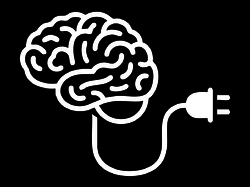The Damaging Fiction of the Wellness Industrial Complex™
By
Josh Clark
Published Jan 21, 2020
The remarkable Liza Kindred posted an elegant and thoughtful takedown of “the wellness industrial complex,” the manipulative mashup of wellness and capitalism. (Even if wellness isn’t your scene, stick with me—this has an important tie-in to design.)
In The Damaging Fiction of the Wellness Industrial Complex™, Liza writes:
There is a lie—a simple but damaging fiction—that seeps under the doors of our yoga studios and burrows into our meditation cushions. It dresses up in cute quotes on Pinterest and has hacked its way into countless Instagram accounts. It smells weird; like someone tried to burn sage over a garbage can. But if we wrinkle up our noses and ask if anyone else smells that weird smell, all we get in response is nervous laughter. Our ears ache from the shrillness of the hollow words; we’re choking on the dust of toxic positivity; and through the haze we think we can see a place where the air is clean–but standing between us and that clearing stands a group of people wearing t-shirts with ancient holy symbols on them, which were purchased from a big box store.
The lie, Liza writes, is the insidious suggestion that you’re not good enough. If only you would hustle harder, do more yoga, keep up your Headspace streaks, and just “work on yourself” more… you could finally be the better person you were meant to be. “Anyone who wants to fix you thinks that you are broken,” Liza warns:
This idea—that we are broken and need to be fixed—is what I call The Golden Cut. It is self aggression masquerading as a journey towards self acceptance. It is a damaging fiction that has invaded the lives and hearts of so many of us, an unchecked moral imperative that has cloaked itself in the language of wellness and well-being.
Constant striving has become the planned obsolescence of the wellness world. It’s precisely how capitalism has invaded wellness.
Liza puts her finger on something that has always felt off-putting to me about aspects of mindfulness as an industry. While mindfulness (and yoga and meditation and its other many cousins) have real and evident benefits, they’re often wrapped in a superficial commercial culture that broadcasts a smug kind of judgment, superiority, and shame to those “not in the club.” For a movement that promises personal growth, that’s just gross.
Liza is explicit about separating out the practices and services of wellness from their toxic alter ego, the wellness industrial complex. It’s not wellness or wellness-related businesses that are bad, she writes; it’s the cynical and manipulative marketing that suggests you are broken and need to be “improved.” It’s healthy to seek and cultivate personal development, and of course to acknowledge our flaws, “but none of this means that we are broken; it means that we are human.”
So what’s this got to do with design?
The very purpose of interaction design is to shape behavior. It guides users through an intentional path to a desired outcome. Commercial design seeks to shape that behavior to the benefit of the company. When done well, of course, it also benefits the customer; both get what they need. All too often, though, that power dynamic becomes lopsided, and the interests of the company steamroll those of the individual.
That’s when you get abusive anti-patterns that incite false urgency or FOMO or shame in order to get that purchase. The confirmshaming anti-pattern in particular reminds me of the “you’re broken” message of the wellness industrial complex. Like this “Nope, I don’t care enough” example:

Confirmshaming is a familiar tactic that fronts as tongue-in-cheek playfulness even as it forces you to say you’re a jerk for not buying the product. (And whattya know, that one’s for a wellness service to boot.)
Every time you design to stir this kind of guilt or false urgency (“75 people are looking at this hotel room”) or interruption (popover ads and notifications) or other unease, you take advantage of the customer. The trouble, of course, is that the tactics work, at least in the short term. If you’re just measuring conversions, you’ll see those metrics rise. But at what cost? Cynical sales tactics sully the very product they aim to sell; they erode trust. How are you measuring that? And how does that result fit with the brand you’re trying to build, or the effect your business is trying to have for your customers?
Simply wild how much in life is fucked solely because someone somewhere would make less money if it were better.
— nicey goodlady (@super_triangle) January 14, 2020
In the wellness world, Liza shows us that the wellness industrial complex deepens jittery unease and dissatisfaction, instead of the calm and peace it promises on the surface. It is harder work to make something that is both profitable and respectful. But you know what? That’s the work.
We can all do and demand better.





